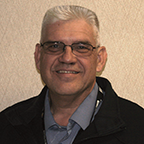How is EOS/ESD Association, Inc. addressing High Reliability?
ESD process control in factories where ESD-sensitive parts are being handled is the foundation for the manufacturing of high quality electronic products. Since 1999, the ANSI/ESD S20.20 Standard has provided specific requirements for the control of electrostatic discharges and has become the basis for the development of effective ESD control programs. The scope of the current version of this Standard specifies that the general limits and requirements are intended for a program that manufactures and handles parts that have withstand voltages of 100 volts HBM and 200 volts CDM or higher.
However, there are industries that have components with sensitivities that are lower than those specified in ANSI/ESD S20.20. For these, the Standard states that there may be additional considerations that must be taken to safely handle and process the components. These, along with components that serve functions where field failures can be very expensive or lead to loss of life are referred to as “high reliability” parts. High reliability components are used in flight-critical and space applications, critical communications, weapon systems, life support, and other such applications where field failures can be catastrophic. While the requirements of ANSI/ESD S20.20 can be used to address high reliability processes, as stated in the Standard, additional control items and/or adjusted limits may need to be considered. This may leave a gap between ANSI/ESD S20.20 requirements and the specific needs of a high reliability control program.
To try to address this, EOS/ESD Association, Inc. has launched a new working group (WG-19) to develop a document that would specifically address high reliability. The purpose of this document is to provide more than merely administrative and technical considerations for high reliability applications. Rather, it is to serve as a guide to assist in the decisions about what needs to be added, changed, or considered when developing a high reliability control program. The ESD TR20.20 handbook serves this purpose for the ANSI/ESD S20.20. The document that WG-19 is developing will reference ESD TR20.20 but extend recommendations to specifically cover high reliability processes.
Formally, the specific item, process or characteristic being investigated is ESD control processes necessary to minimize the potential for reliability degradation. .The working groups intent is to collect best practices and case histories to substantiate ESD control for improved reliability in the industry. The document being worked on is intended to reduce the probability of damage related to ESD events. This document is also intended to reduce the potential for latent damage and to provide industry best practices in ESD control.
During the 2017 EOS/ESD Association Symposium, a workshop was conducted to introduce participants to the efforts of WG-19 High Reliability to develop this document. The objective of the workshop was to have an open discussion of possible ways to modify ESD practices to address what would be needed to go beyond ANSI/ESD S20.20 requirements to support extremely sensitive component handling and “high reliability” products.
The discussion centered on the following questions:
- What is industry’s definition of “high reliability?”
- What changes or enhancements to ESD training may be required to ensure protection of “high reliability” ESDS components/units?
- Should there be specific requirements/qualifications for the ESD control program manager? And if so, what would they be?
- Should there be higher expectation for the ANSI/ESD S20.20 product qualification requirement? What would those expectations be?
- Should compliance verification requirements/frequencies be modified to reflect a “high reliability” mindset?
The comments and ideas generated from both the discussions in this workshop and the ongoing work of WG-19 will form the foundation for the new document. Strong interest both in the working group itself and in the workshop has demonstrated that there is a genuine need in the industry to better address this topic.
If you are interested in becoming part of this important working group to help develop this much extremely important document, please visit EOS/ESD Association, Inc.’s webpage at www.esda.org to find out when the next WG-19 meeting is scheduled.
 Dave Girard is the primary ESD Subject Matter Expert for Honeywell Aerospace, Chairman of the Honeywell Aerospace Corporate ESD Council, and Chairman of the Honeywell Aerospace Clearwater Florida ESD Advisory Group. He represents Honeywell Aerospace on numerous ESD Association standards committees in addition to working with the Society of Automotive Engineers G-19A EEE Device Packaging Inspection Subgroup. Dave is certified as an ESD Association Program Manager, an iNARTE Certified ESD Engineer, an ASQ Certified Quality Engineer, and an ASQ Certified Quality Auditor. He has been a member of the ESD Association since 1987.
Dave Girard is the primary ESD Subject Matter Expert for Honeywell Aerospace, Chairman of the Honeywell Aerospace Corporate ESD Council, and Chairman of the Honeywell Aerospace Clearwater Florida ESD Advisory Group. He represents Honeywell Aerospace on numerous ESD Association standards committees in addition to working with the Society of Automotive Engineers G-19A EEE Device Packaging Inspection Subgroup. Dave is certified as an ESD Association Program Manager, an iNARTE Certified ESD Engineer, an ASQ Certified Quality Engineer, and an ASQ Certified Quality Auditor. He has been a member of the ESD Association since 1987.
Dave has a B.S.E. degree in Engineering from the University of South Florida and works as a Senior Reliability Engineer within the Reliability, Maintainability, and System Safety organization.
 Matt Strickland is currently the ESD Program Manager for L3 Telemetry and RF Products in San Diego CA. He has been involved in ESD control since 2009 and in 2011 named as the Chair for the L3 Technologies ESD resource team. He received his ESD Program Manager Certification in 2015. Matt joined the L3 Communications team in 1997 after retiring from 20 years of Naval service. He obtained a Bachelor of Science Degree in Occupational Safety from Columbia Southern University in 2013.
Matt Strickland is currently the ESD Program Manager for L3 Telemetry and RF Products in San Diego CA. He has been involved in ESD control since 2009 and in 2011 named as the Chair for the L3 Technologies ESD resource team. He received his ESD Program Manager Certification in 2015. Matt joined the L3 Communications team in 1997 after retiring from 20 years of Naval service. He obtained a Bachelor of Science Degree in Occupational Safety from Columbia Southern University in 2013.
Matt has been a member of the ESD Association since 2009 and is currently a Standards Committee Member, serves on several Standards Sub-committees, serves on the ESD Association education committee with a specific role of course material review. He also is a contributing member of the ESD Symposium operational team.
As a certified ESD Program Manager, Matt’s goal is to be able not only to strengthen his local divisions ESD control program, but also to provide guidance and assistance to other divisions within L3 Technologies in the development or strengthening of individual plant ESD controls and processes.
